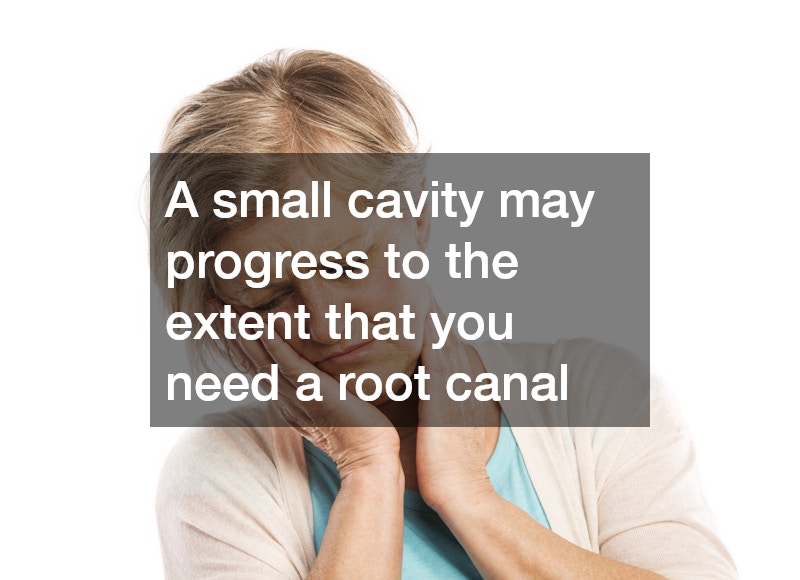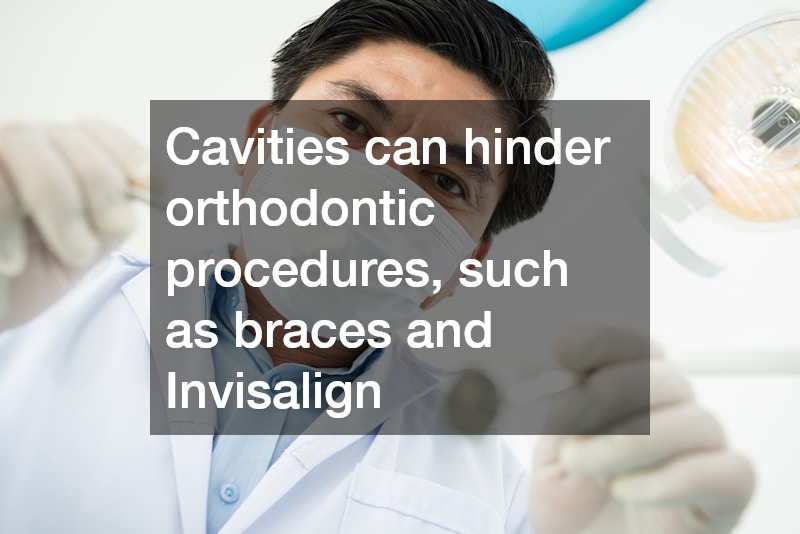The Hidden Dangers of Ignoring Cavities: Facts You Need to Know
Oral health is a vital part of overall well-being. Although routine cleanings are given a lot of attention, the consequences and deeper facts surrounding cavities often take a backseat.
Many people are not aware of the importance of early intervention in treating cavities and preventing more complex dental issues. Local dentists or dental centers stress the importance of regular visits. However, patients may overlook this advice due to their lack of knowledge about the long-term consequences. Ignoring early signs of decay can be detrimental to your oral health and cost you a lot.
This article explores the various aspects of the problem. From the immediate impact of untreated dental cavities to the potential complications of orthodontic treatment and other dental procedures, this article covers them all. Understanding these factors can help you to make informed decisions regarding your dental care journey. This will prevent cavities from affecting your smile’s aesthetics and require more substantial interventions, such as dental implants.
The Long-Term Consequences of Untreated Cavities
Untreated cavities can have serious long-term effects. The cavity can spread deeper, affecting the pulp of the tooth and resulting in infections. Root canal treatment may be necessary. It may be necessary to provide more intensive care such as a crown for aesthetics and functionality.
A neglected cavity can also lead to an abscess, which can be painful and affect the surrounding tissues. It is not only important to seek immediate dental treatment, but it can also have a negative impact on your health as the infection may spread outside of the mouth. Local dentists stress that treating cavities as soon as possible is essential for maintaining a healthy and happy smile.
Dentures or dental implants may be required if the cavities progress. While these solutions are effective, they require more complex procedures, and may also require additional treatments such as gum therapy, to ensure a healthy result. Understanding the importance of timely cavity treatment will save you money on expensive reconstructive dental work.
How Cavities Lead to Complex Dental Issues

If you ignore cavities, they can lead to more complex dental procedures in the future. A small cavity, which could have been easily filled, may progress to the extent that you need a root canal. The complexity of dental treatments increases, as does the cost.
Untreated cavities may also lead to misalignment, which could require orthodontic treatment, such as Invisalign. Untreated cavities can cause alignment issues, which are important for both cosmetic and functional reasons. Local cosmetic and orthodontic dentists often encounter cases in which the failure to treat cavities initially has complicated otherwise simple procedures.
Untreated cavities, in addition to affecting alignment, can also weaken the teeth around them, making them susceptible to decay or damage. It can cause a cascade effect, requiring additional teeth to be treated. This will complicate your dental journey. Keeping these facts in mind about cavities, it is important to seek timely dental advice.
Why Untreated Cavities Require More Invasive Treatments
Unchecked cavities often require more invasive and additional treatments as they develop. After a certain level of decay, simple fillings will no longer be sufficient. Crowns and even dental implants may be required to restore the tooth structure. It is important to treat cavities as soon as possible in order to avoid the need for such extensive restorative dental work.
Cavities can cause gum and bone damage, requiring gum therapy. This is true, especially in cases where the infection has spread to the tissues around it. Local dentists can recognize early warning signs and recommend preventive measures.
Advanced cavities may affect both the function and appearance of your mouth, in addition to the need for physical repairs. Corrective procedures can have a negative impact on other treatments such as Invisalign, resulting in more complex and expensive dental care. These facts about dental cavities highlight the importance of timely treatment in maintaining good oral health.
The Impact of Cavities on Overall Oral Health
Cavities affect not only the tooth in question but can also have a wider impact on oral health. Dental plaque, which is the primary cause of cavities, can harbor bacteria that contribute to gum disease and other oral health problems. It is important to have regular dental checkups in order to manage and monitor these risks.
Cavities can also affect your confidence and quality of life by causing bad breath. If you are experiencing discomfort from certain foods, long-standing dental problems can influence your diet choices and potentially affect your nutritional health. Understanding the effects of cavities is easier when you know their facts.
Untreated cavities may also exacerbate other conditions, such as gingivitis and periodontitis. This can lead to more serious health issues requiring gum treatment. Regular dental visits are essential for detecting problems early and treating them. For comprehensive oral health, it is important to understand their impact on the whole person.
The Importance of Regular Dental Checkups for Prevention
Routine dental visits are essential to preventing tooth decay and its complications. Dentists can perform cleanings and examinations during these visits, which allow them to identify early signs. This allows for an intervention before major damage occurs. It is important to take a proactive approach to prevent cavities from progressing to a more serious stage.
Regular dental visits also offer the opportunity to receive personalized advice about maintaining good oral hygiene. These include advice on how to brush, dietary suggestions, and fluoride. All of these can reduce the risk for cavities. Local dentists can tailor their advice to meet your specific needs and ensure optimal oral health.
In addition, regular dental care allows for the monitoring of existing dental work to ensure that it remains effective over time. It is important to check the integrity of crowns, fillings and other restorative treatments, as well as make any necessary adjustments. These visits have a cumulative effect on cavity prevention.
How Cavities Complicate Common Dental Procedures

Cavities that are not treated can make routine dental care more difficult. When placing a crown on a decayed tooth, additional steps are often required to provide adequate support. Early cavity treatment is essential to dental care.
In addition, cavities can hinder orthodontic procedures, such as braces and Invisalign, which rely on the integrity of the teeth to be effective. In such cases, it may be necessary to extend treatment times or make adjustments, which will increase the cost of the care. Understanding the facts regarding cavities is crucial to minimizing interruptions.
Untreated cavities may also limit the options available to local cosmetic dentists for cosmetic procedures such as veneers and whitening. It may be necessary to address the structural integrity of a tooth before cosmetic improvements can be made. It takes time to achieve your desired smile.
The Risks of Ignoring Cavities on Oral Hygiene
If you ignore cavities, they can cause serious problems for your oral health. The progression of decay creates an environment that encourages bacteria to multiply. These bacteria can lead to bad breath, gum diseases, and other health problems, disrupting daily hygiene and life. Understanding these risks reinforces the importance of cavity management.
Untreated cavities can also cause tooth destruction, requiring restorative procedures such as crowns or dental implants. It complicates not only your immediate dental care, but also the maintenance of long-term oral health. Using the facts on cavities to improve personal care can be beneficial.
The daily oral hygiene routine is also affected by the challenge of treating advanced cavities. As decay advances, it becomes increasingly difficult to maintain good oral hygiene, which can lead to more complications. Consistently ignoring dental cavities can lead to a downward spiral of oral health that requires more invasive treatments.
Signs That Untreated Cavities Are Escalating
Untreated cavities can cause more serious issues. These include persistent pain and increased sensitivity. These symptoms can indicate significant decay or infection. Local dentists may need to act quickly to stop the progression of these conditions. It is important to be vigilant and watch for these changes in order to avoid more complex treatments.
A persistent bad taste or smell is another sign. These are often associated with bacteria-filled cavities. By addressing this issue with a dental professional, you can discover the underlying problems and find both relief and solutions. These facts about cavities show how they often indicate more serious conditions.
Untreated cavities can be detected by visible changes to your teeth such as stains or holes. These physical manifestations can not only compromise your dental hygiene but also affect your aesthetics. These signs are important to recognize and respond to in order for you preserve your dental health.
The Link Between Cavities and Tooth Loss
When examining the facts on cavities, it is important to consider that if they are not treated, they can lead to tooth loss. The decay can progress to a point where it compromises the tooth’s structural integrity, making restoration options limited or impossible. This leads to the extraction of teeth and the necessity for dental solutions such as dentures or implants.
A tooth loss caused by a cavity can also affect the function and balance of your bite. This will impact adjacent teeth and gums. It can cause further dental problems and emphasize the importance of maintaining each tooth’s integrity. A local cosmetic dentist is able to address these concerns.
It is impossible to underestimate the emotional and aesthetic impact that tooth loss has on self-esteem and social interaction. Cavities can be treated promptly to prevent these negative outcomes. This will not only preserve oral health but also confidence and quality of life for individuals. For proactive dental care, it is important to understand the relationship between tooth loss and cavities.
Early Intervention: A Key to Preventing Cavity Complications
Early intervention is essential to effective cavity management. In the early stages of a cavity, less invasive treatments are required to preserve natural tooth structure. This can save money and prevent costly treatment. Early detection and intervention are highly recommended by local dentists to achieve optimal dental health.
Early cavity treatment can help patients avoid more complex procedures such as root canals or crowns. Not only does this reduce the likelihood of discomfort, but it also minimizes financial costs. Early treatment of cavities is the best way to prevent further problems.
Early intervention also allows for more effective planning and personalized dental care that supports long-term oral hygiene. Regular dental visits are crucial for early detection and oral health management. It is important to prioritize prompt treatment, not only for your oral health but also for your overall well-being.
How Cavities Affect Smile Aesthetics
Untreated cavities can negatively impact the appearance of your smile. They often lead to discoloration or damage that is visible. It can also affect your social and personal interactions. Understanding the facts about dental cavities can help you to understand how important it is to take timely cosmetic measures.
By addressing cavities quickly, you can avoid the occasional dullness or dark spot from ruining your smile. The expertise of a cosmetic dentist in your area can be very valuable, as they will provide options to enhance and restore the health of your teeth. There are a variety of solutions to maintain a confident and bright smile, from veneers to fillings.
The long-term neglect of your teeth can lead to more severe changes such as misalignment and shifting that require orthodontic treatment. These changes can make corrective procedures more difficult and emphasize the importance of comprehensive dental care. Taking proactive measures against dental cavities and their possible consequences is important for maintaining your smile’s aesthetics.
The Connection Between Cavities and Gum Health
It is important to consider the relationship between gum disease and cavities when considering overall dental health. Cavities may harbor bacteria which can cause gum disease. This causes inflammation and in some cases more severe periodontal conditions. Local dentists stress that it is important to manage both gum disease and cavities simultaneously in order to avoid complications.
As the decay spreads, it may reach the gum-line areas, causing more problems. Gum therapy may be necessary to restore health and balance. Understanding the interconnections between dental health and other systems is essential for comprehensive management.
It is important to practice a broad range of oral hygiene because bacteria are present in both gum disease and cavities. They can reduce the risk of extractions and implants by preventing the progression of both gum disease and cavities. This relationship is important for both active and preventive treatment.
Cavities and Your Overall Dental Care Journey
Cavities can have a significant impact on your dental health. Cavities influence oral health on many levels, from preventive measures to more intensive reconstructive procedures. It is important to manage them properly in order to maintain long-term dental health.
Your dental care plan may change if your cavities progress. Untreated cavities can lead to treatments that affect ongoing treatment, such as cosmetic enhancements or orthodontic care. This highlights the importance of working with professionals to develop a strategy for dental care.
Regular consultations in dental centers can provide individuals with guidance on how they can integrate cavity management within their overall oral care strategy. It is important to maintain both your natural teeth and any existing dental work. Understanding the impact of cavities on your dental health can help you create a balanced, informed approach.
The impact of cavities on oral health and appearance is often overlooked. In this article, we have explored the various ways that untreated dental cavities can affect overall dental care. This includes initiating complex procedures and affecting daily hygiene as well as smile aesthetics. Understanding the facts about dental cavities can help individuals take proactive steps to protect their oral hygiene.
Local dentists and dental clinics play a vital role in providing early intervention and preventive care, which minimizes the risk of cavities. Regular dental visits are essential to maintaining healthy gums and teeth and planning any necessary corrective actions. Knowledge about cavities can lead to improved oral health.
Final Thoughts
Addressing cavities quickly and effectively is the cornerstone of sustainable dentistry. Untreated cavities can be avoided by recognizing the impact of these conditions, implementing preventive measures, and having regular dental examinations. These practices will help you maintain a healthy smile and oral health for a lifetime.

